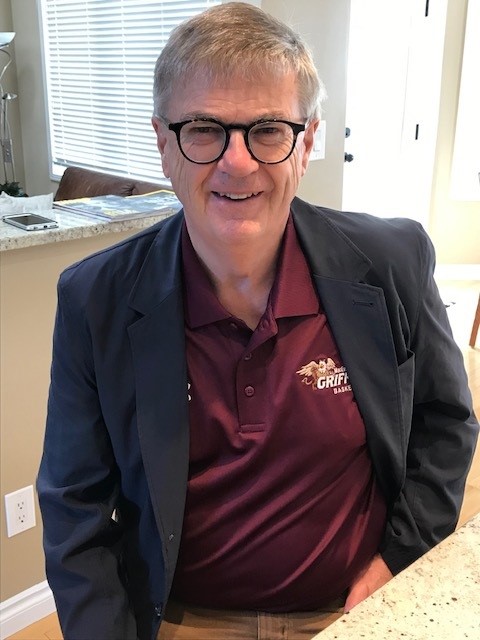Author: David W. Atkinson, Professor and President Emeritus, MacEwan University. David is also the EAB/Guest Editor for On the Horizon and his special issue 'The Future of Universities: View from the Top' will be published in early 2023.

Our times
We would be hard-pressed to have anticipated the events of the last several years. Against a backdrop of a COVID pandemic, we have experienced an assault on Capitol Hill, the celebration of "fake news," an unprecedented political polarisation between the left and the right, the Taliban takeover of Afghanistan with all its damage to human rights and especially the rights of women, and the unimaginable Russian invasion of Ukraine, driven by a misguided vision of a Russian empire, the threat of nuclear war, and a complete disregard for human life. Always in such circumstances, we ask how these events could have occurred? But occur they did, despite all intentions to the contrary.
The technology wave
History confirms that in such circumstances universities, despite ever-increasing interference from government and the private sector, take on a special role in asking questions and in providing answers. They remain the single institution committed to free inquiry and open dialogue. Universities have themselves recently gone through a period of change, forced to transform at unprecedented speed, as faculty who previously had no experience with online teaching were forced into a place where many felt uncomfortable. Technology certainly allowed us to keep teaching our students and it continues to make higher education accessible. But we must not forget that it is different from what many students and their parents want – an inclusive learning experience comprehensive in scope that allows for meaningful relationships between faculty and student, that takes the university learning experience beyond the classroom, and that prepares students for a future of change about which we only guess.
Is that all there is?
The growth of technology in teaching has in recent days taken primacy of place in universities. There is an ever-growing literature talking about "delivery modalities." The danger is that how we teach is taking precedence over what we teach, especially in those disciplines where conversation and debate are central to what they do. As we have become increasingly enamoured with technology and the convenience it provides, we are leaving behind the disciplines – literature, philosophy, history – that address what it means to be fully human, and which demand the rigour of debate.
Is this just old fashioned?
This may be the tired observation of a humanities professor who has not gotten with the program. But it is still the case that we are turning our back on accrued wisdom. In his very recent book, On Consolation, Finding Solace in Dark Times (2021), Michael Ignatieff addresses our current times by going back to those who wrote something timeless – the writers of the Psalms, Cicero, Boethius, Montaigne, Camus – to the wisdom of history to cope with the dislocation and anxiety of the present. We are hard-pressed to find these people in the current undergraduate curriculum.
More than this, though, we have stopped being able to communicate with one another. In a recent Globe and Mail editorial, Mark Kingwell talks about how "language gets in the way of truth" consumed as we are with cliche, jargon, and distortion (Globe and Mail, Mar 15, 2022, 09). Too many people have no appreciation of the power of language. They believe whatever they hear or worse, whatever they want to hear. Words can express one’s ignorance, and ignorance (certainly for the Buddha) engenders suffering. How else, one might ask, could one country presume to annex another with all the toll it takes on human life?
We live in a world that is increasingly diversified, by culture, religion, and gender. Yes, universities have been at the forefront of celebrating difference. But has there been change other than the current "spoke" environment which too often is more concerned with punishing than enlightening? We are, in the name of difference, being told what to say and what to think in what some see as a race to the bottom. We have forgotten about the rigour of thought, clear communication, and tolerance. If we are to talk about diversity and inclusion, surely it must be in the classroom.
I am not, however, naïve. Having spent a lifetime in universities, I know that students are anxious about the future and whether they can meet their own expectations, as well as those imposed on them by others. We need engineers, accountants, nurses, and IT specialists, and universities have a responsibility to provide qualified graduates. But a good life means far more than a good job, and we cannot live in a vacuum. It is up to universities to shape the values and cultivate the skills that allow students to live in the world as truly aware citizens. This may be a dated ambition, but it is still very true today.
In what we teach, however, in what constitutes our curriculum, we must be aware that the world’s problems are human problems requiring an ability to distinguish between cant and truth. We must not believe all our problems can be solved by technology and be too easily swayed by ideology. It would be wise, however, if universities spent a little more time thinking about this.
References
Ignatieff, Michael (2021). On Consolation: Finding Solace in Dark Times, Random House Canada, Toronto.
Kingwell, Mark, "When Language Gets in the Way of Truth," Globe and Mail, Mar. 15, 2022, 09.

Quality education for all
We believe in quality education for everyone, everywhere and by highlighting the issue and working with experts in the field, we can start to find ways we can all be part of the solution.
